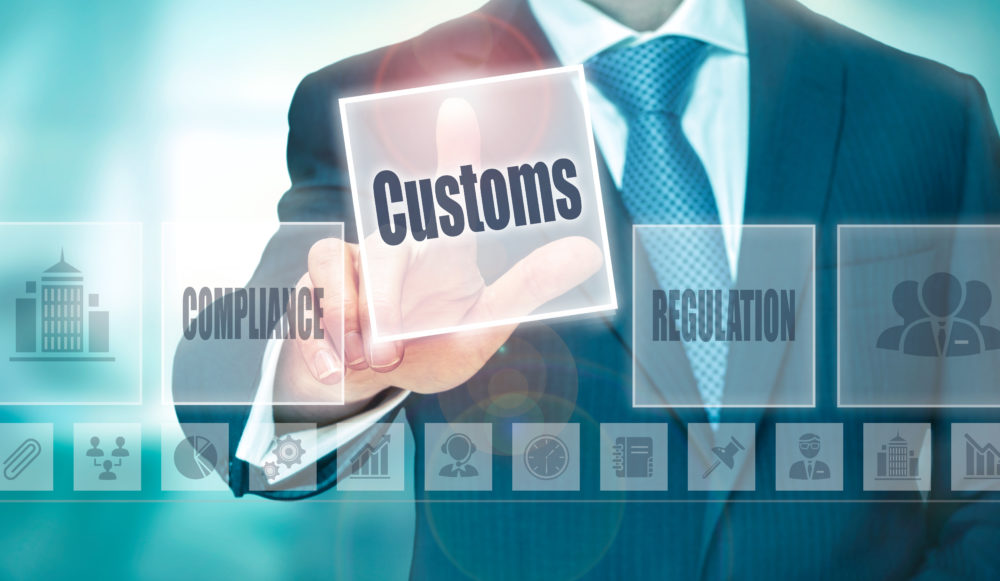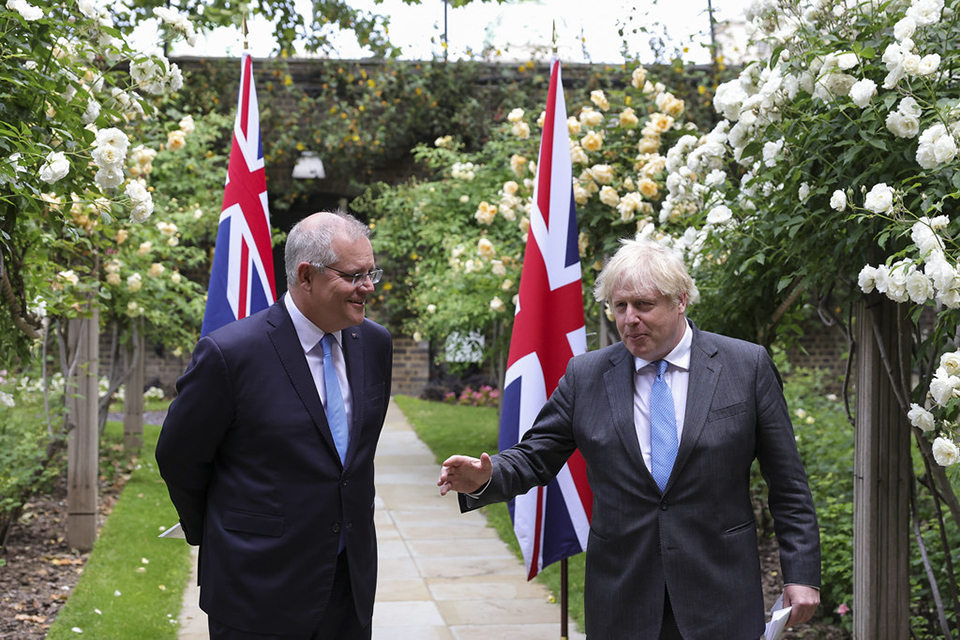If you’re considering growing your business internationally, or if you have suppliers based overseas, you’ll probably already have heard of an EORI number.
From January 1 2021, businesses based in Great Britain have needed an EORI number (starting with GB) to import and export goods to the EU.
If you’re just getting started in importing or exporting, the registration process can seem daunting. Don’t worry though – we’ve got you covered.
Here’s all you need to know about the EORI system, who should register, how to apply and where to go for more help.
What is an EORI number?
An EORI number – which stands for an Economic Operator Registration and Identification number – is a unique ID code used to track and register customs information in the EU.
It’s used by customs and other authorities to monitor and track shipments coming into and out of the European Union.
Who needs an EORI number?
Companies importing goods into or exporting goods from the European Union need an EORI number. This number is used to exchange information with customs authorities.
As of January 1st, 2021 companies importing goods into or exporting goods from the United Kingdom have required a UK EORI number.
You may need an EORI number if you move goods:
- Between Great Britain (England, Scotland and Wales) or the Isle of Man and any other country (including the EU)
- Between Great Britain and Northern Ireland
- Between Great Britain and the Channel Islands
- Between Northern Ireland and countries outside the EU
It’s helpful to know that if your company is part of a larger holding group, then the application must be processed by the parent company, not the subsidiary.
Some small firms have been automatically given an EORI number.
You will also need an EORI number if you need an export licence on SPIRE.
You won’t need one if you are moving goods that are not controlled goods and they’re for personal use only.
To get an EORI number, your business normally needs to be based in the country that you’re importing goods to and from. Your premises needs to be one of the below:
- A registered office
- A central headquarters
- A permanent business establishment, where some of your customs-related activity takes place and your HR and technical resources are permanently located
However, if your premises isn’t based in the country your moving goods from or to, you can still get an EORI number if you’re:
- Making a customs declaration
- Making an entry summary declaration
- Making an exit summary declaration
- Making a temporary storage declaration
- Making a customs declaration for temporary admission or re-export declaration where you have a guarantee
- Using a customs systems, such as the CHIEF system and the Import Control System Northern Ireland (ICS NI)
- Appointing someone to deal with customs on your behalf. The person you appoint will need to receive the EORI number instead of you.
- Acting as a carrier for goods transported by sea, inland waterway or air
- Acting as a carrier connected to the customs system and you want to get notifications on the lodging or amendment of entry summary declarations
- Established in the common transit country where the declaration is lodged rather than an entry summary declaration or is used as a pre-departure declaration
If you’re not eligible to apply for an EORI number by yourself, you’ll have to get someone to deal with customs on your behalf and they’ll need an EORI number.
Is the EORI number the same as a VAT number?
An EORI number is not the same as a VAT number; however, if you are VAT registered, they are linked. When you submit your VAT registration, there is an option to also register for an EORI number.
Once this has been done, HM Revenue and Customs (HMRC) will link all your imports to your VAT number. EORI numbers in the UK begin with the letters “GB”. This is followed by a 12-digit number, which is based on the business’s VAT number (for example, GB123456789000).
The format of an EORI number
An EORI number is made up of a country code, to show where the organisation or individual is registered, and a unique code or number. For GB businesses the number is made up as follows:
- VAT registered businesses: GB + VRN (VAT registration number) + 000
- Non-VAT registered businesses: GB + unique number issued by HMRC
It’s worth mentioning that you may still need an EORI number starting with GB to use some UK customs systems.
How to apply for an EORI number
If you’re based in the UK, then you’ll have to complete the correct paperwork to get an EORI number.
Apply for an EORI number that starts with GB
To apply for an EORI number you need your:
- Unique Taxpayer Reference (UTR) – find your UTR you do not know it
- Business start date and Standard Industrial Classification (SIC) code – these are in the Companies House register
- Government Gateway user ID and password
- VAT number and effective date of registration (if you’re VAT registered) – these are on your VAT registration certificate
- National Insurance number – if you’re an individual or a sole trader
If you do not already have a Government Gateway user ID, you’ll be able to create one when you apply.
You’ll get your GB EORI number immediately unless HMRC needs to make any checks on your application. If they do, it can take up to five working days.
Apply for an EORI number that starts with XI
You will also need an XI EORI number if you move goods between Northern Ireland and non-EU countries. Your number will start with XI in this case.
You must have applied for a GB EORI number before you can get an XI EORI number.
If you’re not sent one automatically, you can apply online for an EORI number that starts with XI. You can apply for an EORI number that starts with GB and one that starts with XI at the same time. You’ll get your number starting with XI within four working days.
To apply, you’ll need:
- Your XI VAT number (if you have one)
- Any VAT numbers issued by an EU country
- Two documents showing proof of your permanent business establishment in Northern Ireland, such as a bank statement or utility bill
However, you won’t be asked for proof of permanent business establishment in Northern Ireland if the establishment address is listed on your GB EORI application or you business isn’t based in Northern Ireland but you need an EORI for other reasons.
Which application form do I fill in?
Use this application form to register for a GB EORI number.
Use this application form to register for an EORI number starting XI.
These application forms are used for companies which will use couriers or freight forwarding services to import or export. If you’re applying for an EORI number to complete customs declarations yourself, you’ll need a different form. If you intend to use the CHIEF (or the replacement Customs Declaration Service) or NCTS systems, then you should use this application process.
What information do I need when applying for an EORI number?
The online application process for an EORI number is fairly straightforward – but you will have to have a number of details handy to complete it.
It’s worth noting that you’ll need to give details of the shipment you’re currently intending to clear in or out of the EU. The form can’t be completed ahead of time, and if you skip this information your application will be rejected.
Here’s what you can expect to need:
- The government website lists your business’s start date and Standard Industrial Classification (SIC) code
- Your Unique Taxpayer Reference (UTR)
- Your Government Gateway user ID and password
Individuals and sole traders should make sure they’ve got a note of their National Insurance number too.
How long will the EORI application take?
If you complete the paperwork correctly, you should have your EORI number by email straight away. But it can take up to a week, so if you need one, apply now. HMRC advises that you check your spam folder if the email doesn’t arrive, as it may have been delivered there instead.
You will also need an EORI number if you move goods between Northern Ireland and non-EU countries. Your number will start with XI in this case. To get an EORI number that starts with XI, you must already have an EORI number that starts with GB.
If you’re not sent one automatically, you can apply online for an EORI number that starts with XI from December 11 2020. You can apply for an EORI number that starts with GB and one that starts with XI at the same time. You’ll get your number starting with XI within four working days.
EORI checker
Before you submit your application for a new EORI number, you should check that your company is not already registered.
If your company is registered for VAT, it may have already been issued an EORI number automatically. EORI numbers are permanently associated with the company they’re issued to – so you won’t get another EORI number if you’ve simply forgotten yours.
You can check if your company has a number already easily with an EORI number validator.
Even if you’re not sure about needing one, it’s worth applying anyway – and the application is free.
How to find an EORI number by company name
If you need help finding an EORI number, you can contact the HMRC EORI team using their contact form. However, data protection regulations across the EU mean that you might not be able to get full data on a registered company if they’ve not consented to make their details publicly available.
What happens if you’re not EORI registered
If you don’t have an EORI number then you can’t import or export goods from the EU legally. This is because the number is used for customs declarations of all goods entering or exiting the EU. Without a number, you could face increased costs (such as storage fees) and delays.
How to contact the EORI team
If you need to get advice or ask questions about obtaining an EORI number, you have a few options:
- To get specific EORI advice, contact the HMRC EORI team using the details on this page
- For more general queries you can call HMRC on 0300 322 9434, Monday to Friday, 8am-10pm and Saturdays, Sundays and bank holidays 8am-4pm
- Write to HMRC: HM Revenue and Customs – CITEX Written Enquiry Team, Local Compliance S0000, Newcastle, NE98 1ZZ
When you should contact the EORI team
The EORI team can help you with any initial queries you might have when you’re getting started with importing or exporting in the EU. However, you’ll also have to contact the EORI team for the following:
- To update your company details, such as the registered name, address or VAT number
- If you register for VAT for the first time
- If you don’t want to use your EORI number any more
- To remove your company details from the public EORI database
An EORI number is crucial if you’re planning on growing your business abroad, or working with suppliers based overseas. Getting set up shouldn’t be too tricky. Just follow the steps outlined here and your business could be working across borders in no time.




